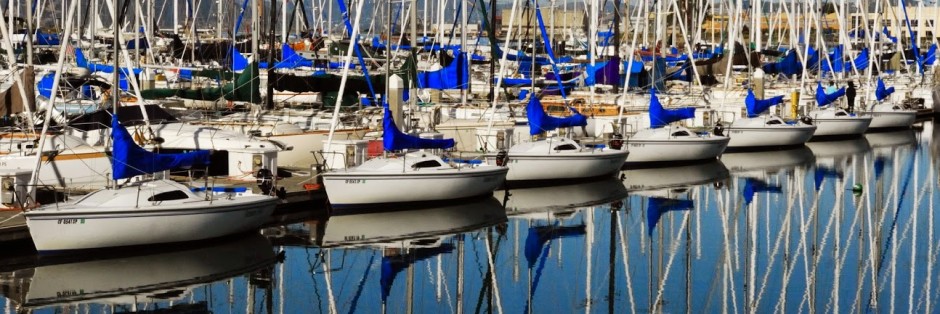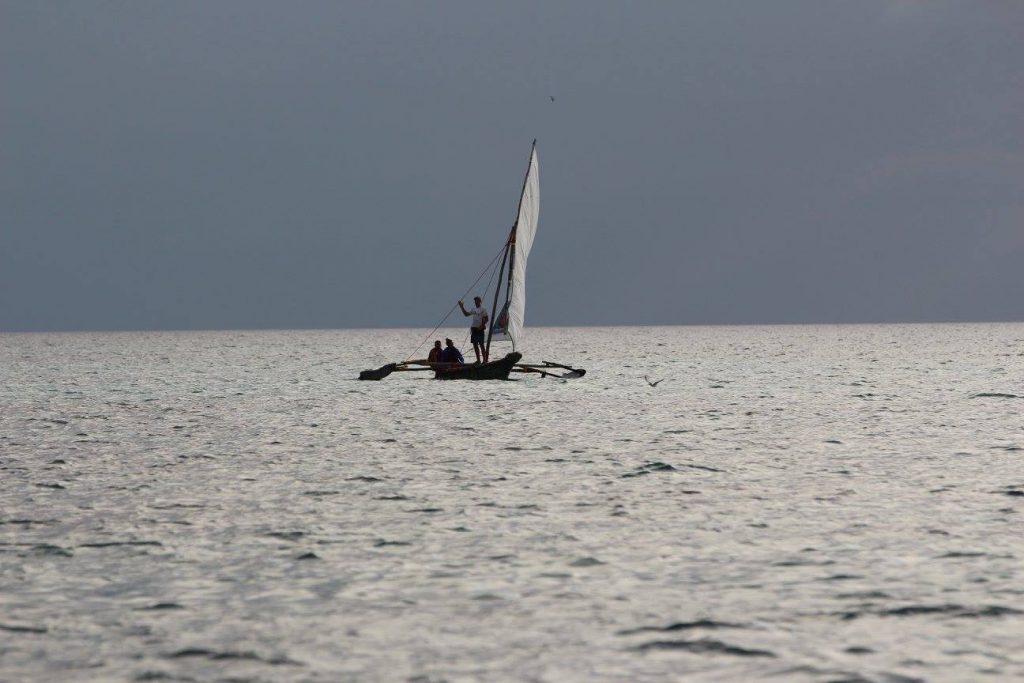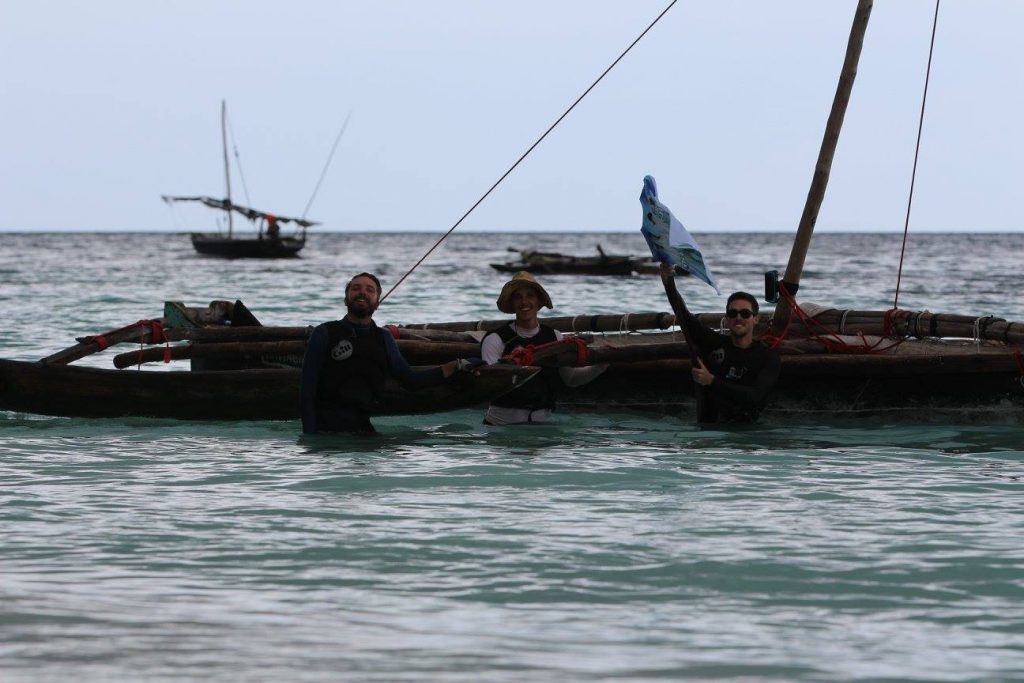This past summer I was approached by my friend who badly wanted to participate in the Ngalawa Cup Sailing Race in Tanzania. He needed an experienced sailor to sign up his team, and he knew that I was a Tradewinds member and a decent enough sailor. I reluctantly agreed to captain an unfamiliar engineless sailing vessel with a crew of two land lubbers in a survival sail race. It would begin in the southern Tanzanian coastal village of Kilwa and would end 10 days and over 300 nautical miles North on the upper tip of Zanzibar. Becuase I was taught to sail at Tradewinds, I had no doubt I was ready for this adventure!
The Ngalawa: Upon arriving in southern Tanzania we were introduced to the vessels we would be bonding with over the next two weeks. The Ngalawa is an ancient African design originally used by fishermen for short trips close to the coast and not built to withstand long offshore passages. Each boat was hand made- the canoe carved out of the trunk of a mango tree. It had two large wood pontoons that were lashed to crossbeams in the boat and a thick treebranch for a mast. The yards were mostly bamboo, and our sail was nothing more than an old smelly peice of canvas with patches and tears. The hulls would leak like a spigot, so we were given a cotton cloth and wads of cow fat for plugging the leaks. It was explained to each team that these boats would most definitely break down, and we would have to either fix them ourselves or make our way to the nearest island and find a local “Fundi” (Swahili for Boat Expert) who could help with repairs.
The Course and Rules: We began each morning at 0630. Using GPS trackers we could log our start time and locations. Our GPS would ping on an hourly basis, giving our general location. Each day we sailed between 30 and 60 miles, going from one remote island to the next. We had to be on an island by sundown each day and log our landing, or else we would prompt a search and rescue by the rescue boats. The islands we stayed at each night were remote and either uninhabited or contained small tribal villages of local fishermen and their families. Some islands were required checkpoints; for other stops we were given choices for strategic value. Each team was given inflatable pontoons and instructions on how to right a capsized vessel. Each sailor was given a GPS tracker and an LED light signal in case a MOB recovery was unsuccessful. Rescue was often hours away, so self reliance was key.
The Competition: This race is sponsored twice a year- once in late June and once in January. The teams are comprised of whoever signs up! This summer we were 1 of 6 teams: the British, the South Africans, the Australians, the French, the Spanish, and the Americans ( ‘MERICA!!!). It was required that at least one sailor on each team have at least a little sailing experience. Due to the vagueness of this requirement, knowledge and skill levels varied WIDELY among teams. It was hard to determine who our biggest challenger would be; but on day one the British team took a strong lead within hours, so it remained throughout most the race that we were neck and neck with these cheeky sailors.
The Adventure: On day one we snapped our rudder in half and ran aground on a coral reef 3 miles off the mainland. With waves crashing down, filling our little Ngalawa, we managed to drag ourselves off the reef and use a paddle to steer our way to the next island for repairs. On day two we were hit by two squalls with gusts reaching 35+ knots. Three teams capsized this day, and one had to rescue a man over board. On day three another team’s member stepped on a stone fish, lost feeling in his leg all the way to his hip, and nearly blacked out from the pain. On day four the British team, in an effort to gain some extra time, chose to land on an island with strategic value for the race; but this island was known for having thieves, and rats the size of dogs. They didn’t sleep a wink. On day five we sailed out of the harbor of Dar Es Salaam, and while navigating the tankers and ships, we eventually found ourselves coasting through a sea of dozens of fishermen in their tiny wooden canoes. With a small battery powered speaker mounted to our mast, we blasted full volume the ‘Pirates of the Caribbean’ theme song and got the most confused looks from these local seamen. On day seven we ran out of food and had to barter with a local island’s tribal village for bananas, coconuts, fish, bread and water. On day nine we landed on the white beaches of Zanzibar’s historic Stone Town. It happened to be the last day of the Islamic holiday of Ramadan, with festivities all over the city – we ate like KINGS. On day nine we raced all day within inches of the British team trying desperately to place first! We landed on the North end of Zanzibar just minutes after the British, and we finished in second place overall. Remarkably, we sailed so well that we actually ended a day early. Over the next 36 hours, the last 4 teams made their way to the finish line, and that night was a party like no other! WE SURVIVED THE NGALAWA CUP!!!
My teammates are avid photographers and managed to bring a drone on the trip! I left mine back home – using it as a security unit (more – at www.sixtechsys.com). They compiled an amazing video so please check it out on youtube at:
For those interested in future Ngalawa Cup Races, you can find information at theadventurists.com










Great article Kevin. Good for you to engage in the adventure. Glad you’re safe now.
EPIC!!!!!